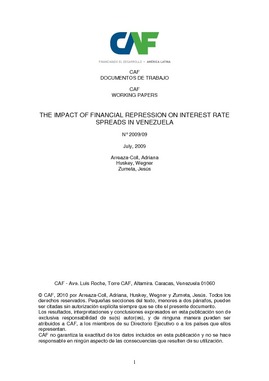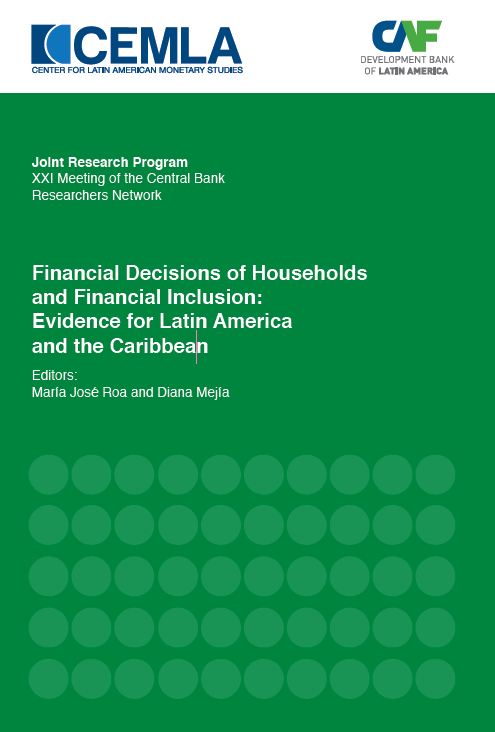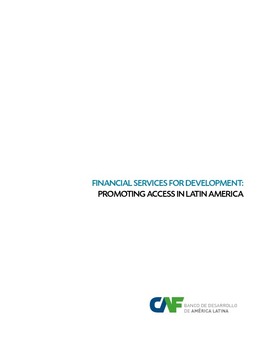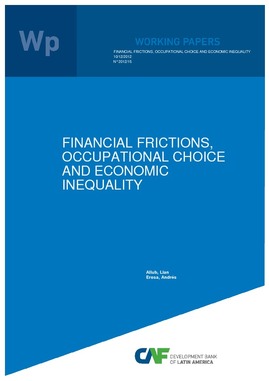The impact of financial repression on interest rate spreads in Venezuela
Resumo
This paper empirically examines the effect of financial repression on interest rates spreads in Venezuela. In order to have a measure of financial repression, we built an index that captures the opportunity cost of regulatory restrictions on banking operations, such reserve requirements, mandatory lending programs, and the cost of financial transactions taxes. After controlling for other bank-level and systemic determinants, results of panel regressions suggest that there is a statistically significant positive correlation between the overall index of financial repression and interest rate spreads.
Assunto
País / Región
Data
2009Cite esta publicação
Item que pertence à coleção
Autor
Arreaza, AdrianaHuskey, Wegner
Zumeta, Jesús
Items Relacionados
Financial Decisions of Households and Financial Inclusion: Evidence for Latin America and the Caribbean
Over the last few decades the interest in understanding household financial decision making has been growing. This interest has partly been due to its ...
RED 2011: Financial services for development: promoting access in Latin America (chapter one)
This publication also highlights the development of microfinance institutions (MFI) and their significant contribution towards bringing these services ...
Financial Frictions, Occupational Choice and Economic Inequality
We develop a quantitative theory of entrepreneurship, income inequality, and financial frictions disciplined with household data from Brazil. The theory ...






